Frontpage News (3259)
International Federation Of Red Cross Trains 14m Nigerians On First Aid
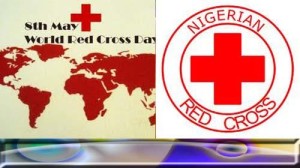 The International Federation of Red Cross and Red Crescent Societies (IFRC) has trained more than 14 million people in Nigeria on first-aid in 2012, according to a statement issued in Abuja on Friday. The statement, signed by Mr Mohammed Bashir-Illela, National Training Officer, Nigerian Red Cross Society in Abuja, said the organisation had remained the world’s leading first-aid trainer and provider for more than 150 years. “While the marketplace has changed, our belief that performing first-aid is an act of humanity – not just a series of techniques – has not,’’ it stated. It stated that the World First Aid Day (WFAD), to be celebrated on Saturday (Sept. 12), was a time to promote first aid knowledge and skills around the globe. The association said it would bring about the change needed to enhance, expand and improve first-aid training worldwide as an act of humanitarian empowerment and a key component of a wider resilience approach.
The International Federation of Red Cross and Red Crescent Societies (IFRC) has trained more than 14 million people in Nigeria on first-aid in 2012, according to a statement issued in Abuja on Friday. The statement, signed by Mr Mohammed Bashir-Illela, National Training Officer, Nigerian Red Cross Society in Abuja, said the organisation had remained the world’s leading first-aid trainer and provider for more than 150 years. “While the marketplace has changed, our belief that performing first-aid is an act of humanity – not just a series of techniques – has not,’’ it stated. It stated that the World First Aid Day (WFAD), to be celebrated on Saturday (Sept. 12), was a time to promote first aid knowledge and skills around the globe. The association said it would bring about the change needed to enhance, expand and improve first-aid training worldwide as an act of humanitarian empowerment and a key component of a wider resilience approach.
The theme of the celebration is “First aid and ageing population’’ with the aim of building a positive image of ageing and recognise older people as an important resource for society, the statement said. “We also want to encourage older people self-empowerment, strengthening their resilience and capacity to be autonomous while promoting their inclusion in society as actors and not only as beneficiaries. “Indeed, we believe that older people can be transformed from being `cared for’ into `people providing quality integrated care,’’ it said. The society said the 2014 theme highlighted the need for “first-aid heroes” in daily emergencies and disasters. “The message was that neither a cape nor superpower is needed to be a hero; first aid saves lives, everyone, everywhere can be a hero. “This same message and slogan, “Be a hero. Save lives. First aid is for everyone, everywhere, remains relevant to the theme,’’ it said. It stated that older people could be heroes and support their peers, their grand-children and other people in several ways. “Therefore, the visual identity, slogan and theme are a continuation from last year’s WFAD campaign,’’ it said. (NAN)
Source:Leadership Online
 A former member of the National Assembly, Mrs Abike Dabiri-Erewa, on Friday decried the inability of the Goodluck Jonathan administration to assent to the Disability Bill inspite of its passage by the two houses of the National Assembly. Dabiri-Erewa, who was the Chairperson, House Committee on Diaspora during the 7th session, made this known in an interview with the News Agency of Nigeria (NAN) in Ibadan. NAN reports that the former lawmaker spoke against the backdrop of the implication of non-assent to the bill for persons with disability in Nigeria. Dabiri-Erewa, who was the sole sponsor of the bill, said that it was a shame that Nigeria currently had no law in place for persons with disability. “We did a lot of work on that bill both at the Senate and the House of Representatives and it was one of those bills sent to the president to sign into law. “Despite lawmakers’ early passage of the bill considering the hardship faced by our fellow citizens living with disability, I am particularly sad that our effort was not rewarded by the last government.
A former member of the National Assembly, Mrs Abike Dabiri-Erewa, on Friday decried the inability of the Goodluck Jonathan administration to assent to the Disability Bill inspite of its passage by the two houses of the National Assembly. Dabiri-Erewa, who was the Chairperson, House Committee on Diaspora during the 7th session, made this known in an interview with the News Agency of Nigeria (NAN) in Ibadan. NAN reports that the former lawmaker spoke against the backdrop of the implication of non-assent to the bill for persons with disability in Nigeria. Dabiri-Erewa, who was the sole sponsor of the bill, said that it was a shame that Nigeria currently had no law in place for persons with disability. “We did a lot of work on that bill both at the Senate and the House of Representatives and it was one of those bills sent to the president to sign into law. “Despite lawmakers’ early passage of the bill considering the hardship faced by our fellow citizens living with disability, I am particularly sad that our effort was not rewarded by the last government.
“I sincerely hope that the 8th National Assembly would make it a priority bill because we are dealing with over four million Nigerians who happen to be physically challenged. “We are saying that the government must put them into consideration in everything we do. “For instance, there is the area of construction of public buildings, banks, hospitals, schools and other work places because the bill is all encompassing,” Dabiri-Erewa said. In his own submission, Mr Paul Adelabu, a former Special Adviser to the Oyo State Governor on Disability, said that it was Jonathan’s personal decision not to sign the bill into law. According to Adelabu, Jonathan felt that meeting the conditions cited in some sections of the bill might be too demanding for the country. “However, the lawmakers that passed the bill are very kind Nigerians. Jonathan also promised to establish a National Commission for People with Disability. “This, he said, at a town hall meeting with Buhari at Nasarawa and I was physically present there. “Buhari also agreed with us to include persons with disability in his government,” Adelabu said.
NGO To Train 5,000 Health Workers In Kaduna, Lagos, Gombe – Official
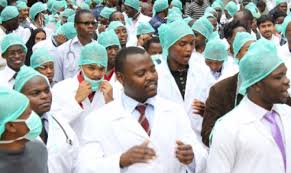 Save the Children, an international NGO, said on Friday that it would train 5,000 health care workers in Kaduna, Lagos and Gombe states to improve the quality of health care delivery. The NGO’s Coordinator in Kaduna State, Hajiya Aisha Abubakar, made this known in Kaduna during the inaugural meeting of the project tagged; “Improving Health Workers Capacity in Nigeria”. Abubakar explained that out of the figure, 1,900 beneficiaries would be selected from Lagos while 1,550 each would benefit in Kaduna and Gombe states. According to her, the aim is to improve access to life saving health care by building capacity of frontline health workers to deliver quality services to address infant and child mortality. She said that the training would be conducted with funds from Glaxo Smith Kline (GSK), with focus on improving the skills of health care workers in areas with highest skilled gaps.
Save the Children, an international NGO, said on Friday that it would train 5,000 health care workers in Kaduna, Lagos and Gombe states to improve the quality of health care delivery. The NGO’s Coordinator in Kaduna State, Hajiya Aisha Abubakar, made this known in Kaduna during the inaugural meeting of the project tagged; “Improving Health Workers Capacity in Nigeria”. Abubakar explained that out of the figure, 1,900 beneficiaries would be selected from Lagos while 1,550 each would benefit in Kaduna and Gombe states. According to her, the aim is to improve access to life saving health care by building capacity of frontline health workers to deliver quality services to address infant and child mortality. She said that the training would be conducted with funds from Glaxo Smith Kline (GSK), with focus on improving the skills of health care workers in areas with highest skilled gaps.
“Save the children, an international NGO with presence in Nigeria since 2001, has recently access funds from Glaxo Smith Kline (GSK) to support the government of Kaduna, Lagos and Gombe states. “The GSK-funded training was designed to contribute towards an overall goal of improving the quality of health service and reducing maternal newborn and child mortality in the benefiting states. “The project, a three-year grant, was aimed to collaboratively build the capacity of health workers and support the presence of an enabling environment for health workforce development,” she said. The coordinator said that available records indicated that Kaduna state with a population of over seven million people had a density of 10.9 doctors, 29.3 nurses and midwives per 100,000 people. “As in Lagos and Gombe, the distribution of the health workforce in Kaduna is heavily weighted in favour of urban areas and tertiary facilities.
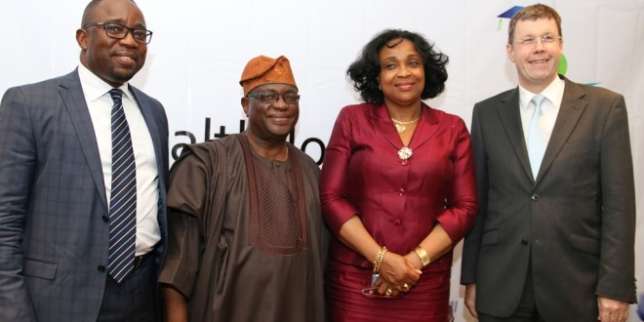 In the spirit of Corporate Social Responsibility, Swiss health-care giant, Roche Products Limited has launched Nigeria’s first-ever Health Journalists Academy. The Academy, which was officially opened on Thursday, September 3, 2015, will serve the purpose of boosting health reportage and coverage in the country. Participants at the launch of the Roche Health Journalists Academy on September 3, 2015. 15 journalists from print, broadcast and new media have been chosen as the first beneficiaries of the Academy which was established in partnership with the School of Media and Communication (SMC) at the Pan-Atlantic University to provide top-notch reporting skills and bring increased awareness to health issues in Nigeria. According to Roche’s Country Manager for Nigeria, Herman Addae: “We are convinced that our duty as a responsible corporate citizen goes beyond manufacturing and selling medication and medical devices. We have therefore decided to explore a new way to improve healthcare delivery in Nigeria.”
In the spirit of Corporate Social Responsibility, Swiss health-care giant, Roche Products Limited has launched Nigeria’s first-ever Health Journalists Academy. The Academy, which was officially opened on Thursday, September 3, 2015, will serve the purpose of boosting health reportage and coverage in the country. Participants at the launch of the Roche Health Journalists Academy on September 3, 2015. 15 journalists from print, broadcast and new media have been chosen as the first beneficiaries of the Academy which was established in partnership with the School of Media and Communication (SMC) at the Pan-Atlantic University to provide top-notch reporting skills and bring increased awareness to health issues in Nigeria. According to Roche’s Country Manager for Nigeria, Herman Addae: “We are convinced that our duty as a responsible corporate citizen goes beyond manufacturing and selling medication and medical devices. We have therefore decided to explore a new way to improve healthcare delivery in Nigeria.”
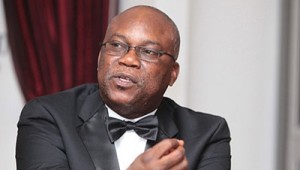 The Director-General of Standards Organisation of Nigeria (SON), Dr Joseph Odumodu, has said that the agency has seized substandard products worth four billion naira since the beginning of the year. Odumodu made the disclosure in an interview with the News Agency of Nigeria (NAN) in Abuja on Sunday, adding that in September, the agency seized substandard telephone sets worth N350 million. “In the last three days, we have confiscated over N350 million worth of telephone sets that are substandard. “If I add that to the number I have earlier, we have a number of about four billion naira this year alone. “I tell you that is not a thing of joy because all these products were imported, paid for with genuine dollars and would be destroyed and they are Nigerian money,’’ he said. Odumodu called for a law to jail people involved in the importation of substandard products into the country. According to him, the organisation now has a new act that confers additional power to prosecute offenders on it.
The Director-General of Standards Organisation of Nigeria (SON), Dr Joseph Odumodu, has said that the agency has seized substandard products worth four billion naira since the beginning of the year. Odumodu made the disclosure in an interview with the News Agency of Nigeria (NAN) in Abuja on Sunday, adding that in September, the agency seized substandard telephone sets worth N350 million. “In the last three days, we have confiscated over N350 million worth of telephone sets that are substandard. “If I add that to the number I have earlier, we have a number of about four billion naira this year alone. “I tell you that is not a thing of joy because all these products were imported, paid for with genuine dollars and would be destroyed and they are Nigerian money,’’ he said. Odumodu called for a law to jail people involved in the importation of substandard products into the country. According to him, the organisation now has a new act that confers additional power to prosecute offenders on it.
“I promise you that before the end of this year we may be celebrating the jailing of, at least, one major substandard kingpin in Nigeria,’’ Odumodu said. He said the organisation was doing everything possible to ensure that the importation of substandard products into the country was reduced to 10 per cent by the end of the year. “My target is before the end of this year, the organisation will reduce substandard products from its current 40 per cent level to 10 per cent. “We have killed our industries because they are competing with substandard products. “ We need to do things that will make a lot of difference to us. “When I started the journey in 2011 we had a level of substandard products with over 80 per cent in all the sectors. “Today we are around 40 per cent to 45 per cent; in this new dispensation we will reduce it further by 90 per cent,’’ Odumodu said.
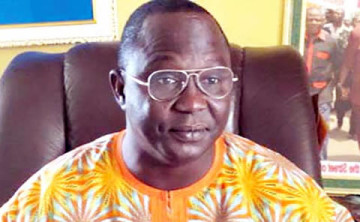 The Medical and Health Workers Union of Nigeria has appealed to the Federal Government to disregard calls by experts in the health sector to privatise public health care delivery services, describing it as unnecessary. The union accused those calling for the privatisation of hospitals of destroying health sector and then hiding under the pretext of privatisation to cover up their corrupt deeds.
The Medical and Health Workers Union of Nigeria has appealed to the Federal Government to disregard calls by experts in the health sector to privatise public health care delivery services, describing it as unnecessary. The union accused those calling for the privatisation of hospitals of destroying health sector and then hiding under the pretext of privatisation to cover up their corrupt deeds.
The President of MHWUN, Biobelemoye Josiah, stated this in Abuja, during the commissioning of ‘Ayuba Wabba House’, the union’s permanent secretariat, named after its former President and President of Nigeria Labour Congress, Dr. Ayuba Wabba. According to him, the privatisation of public health institutions would cause untold hardship for millions of poor Nigerians.
Biobelemoye said, “We are constrained to raise our voice against the incipient push to consolidate a neoliberal agenda in the health sector by some experts who have never borne the burden of want and deprivation confronting tens of millions of Nigerians.
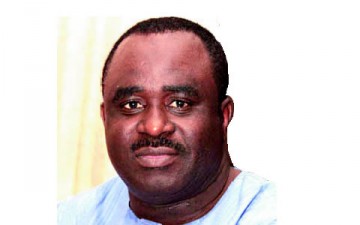 The National Agency for Food and Drugs Administration and Control has described traditional medicine as the source of care for the majority of Africans. At the 13th African Traditional Medicine Day in Ikeja, Lagos recently, NAFDAC’s Director General, Dr. Paul Orhii, said the event was aimed at regulating the manufacture of traditional medicine in the African region. Orhii, who was represented by the Deputy Director, Drug Evaluation and Research, NAFDAC, Mrs. Titilope Owolabi, noted that traditional medicine remained the main source of health care for about 80 per cent of the population in many developing countries because of its accessibility, affordability and acceptability. He siad, “Some years back, the World Health Organisation referred to traditional health systems as holistic, while emphasising the view that ill health is brought about by an imbalance of man in his total ecological system and not by the causative agent. “This has helped the inclusion of proven traditional remedies in national drug policies and regulatory approvals by developing countries,” Orhii said.
The National Agency for Food and Drugs Administration and Control has described traditional medicine as the source of care for the majority of Africans. At the 13th African Traditional Medicine Day in Ikeja, Lagos recently, NAFDAC’s Director General, Dr. Paul Orhii, said the event was aimed at regulating the manufacture of traditional medicine in the African region. Orhii, who was represented by the Deputy Director, Drug Evaluation and Research, NAFDAC, Mrs. Titilope Owolabi, noted that traditional medicine remained the main source of health care for about 80 per cent of the population in many developing countries because of its accessibility, affordability and acceptability. He siad, “Some years back, the World Health Organisation referred to traditional health systems as holistic, while emphasising the view that ill health is brought about by an imbalance of man in his total ecological system and not by the causative agent. “This has helped the inclusion of proven traditional remedies in national drug policies and regulatory approvals by developing countries,” Orhii said.
A professor of Pharmacognosy, Prof. Anthony Elujoba, commended NAFDAC for according recognition to traditional medicines. He noted that traditional medicine is now of better quality. Also, president of the National Association of Nigerian Traditional Medicine Practitioners, Mr. Omon Oleabhiele, expressed appreciations for the efforts of NAFDAC, saying, that in bringing traditional medicine practitioners together, it will make for national acceptability of traditional medicines.
Source:Punch Online
 The Ministry of Health will on Wednesday, September 16 2015, launch a National Medical Outreach Services dubbed “Onuador” as a means of bringing healthcare to the doorsteps of Ghanaians. President John Dramani Mahama is expected to launch the Onuador Medicare at the event which would take place at the Sekondi Naval Base in the Western Region. A statement issued by the Public Relations Unit of the Ministry of Health said: “The National Medical Outreach Services has been employed by the Ministry of Health as one of the means by which equity gaps in healthcare delivery can be bridged to some extent. It has been quite an effective adjunct to traditional interventions, which tend to be comparatively more capital intensive.” The Mobile Clinic service is expected to cater for general medical care, dentistry, ophthalmology and audiology.
The Ministry of Health will on Wednesday, September 16 2015, launch a National Medical Outreach Services dubbed “Onuador” as a means of bringing healthcare to the doorsteps of Ghanaians. President John Dramani Mahama is expected to launch the Onuador Medicare at the event which would take place at the Sekondi Naval Base in the Western Region. A statement issued by the Public Relations Unit of the Ministry of Health said: “The National Medical Outreach Services has been employed by the Ministry of Health as one of the means by which equity gaps in healthcare delivery can be bridged to some extent. It has been quite an effective adjunct to traditional interventions, which tend to be comparatively more capital intensive.” The Mobile Clinic service is expected to cater for general medical care, dentistry, ophthalmology and audiology.
During outreach exercises, the medical team is expected among others to provide interactive health education in communities in order to promote healthy life style and prevent diseases. The team is also expected to provide emergency treatment to members of the community who would require such services as well as offer screening and treatment for general medical conditions, ophthalmology, dentistry, and hearing.
Source:Pulse Nigeria
Hundreds quarantined as disease returns to north Sierra Leone district
 Health authorities quarantined hundreds of people in northernSierra Leone on Monday after a 16-year-old girl died of Ebola in an apparent case of sexual transmission, the first confirmed death from the virus in the district for nearly six months. Sierra Leone celebrated last month when it discharged the last remaining Ebola patient from its treatment centres. But since then a new spate of cases has erupted, leaving two dead and five people in treatment. The worst outbreak of Ebola on record has killed more than 11,000 people in Sierra Leone, Guinea and neighbouringLiberia since it began in December 2013. Liberia was declared Ebola-free this month but growing evidence that the virus may survive longer than previously thought in sperm has raised fears of fresh outbreaks. The teenage girl, Kadiatu Thullah, died on Sunday at theInternational Medical Corps Ebola treatment unit, authorities said.
Health authorities quarantined hundreds of people in northernSierra Leone on Monday after a 16-year-old girl died of Ebola in an apparent case of sexual transmission, the first confirmed death from the virus in the district for nearly six months. Sierra Leone celebrated last month when it discharged the last remaining Ebola patient from its treatment centres. But since then a new spate of cases has erupted, leaving two dead and five people in treatment. The worst outbreak of Ebola on record has killed more than 11,000 people in Sierra Leone, Guinea and neighbouringLiberia since it began in December 2013. Liberia was declared Ebola-free this month but growing evidence that the virus may survive longer than previously thought in sperm has raised fears of fresh outbreaks. The teenage girl, Kadiatu Thullah, died on Sunday at theInternational Medical Corps Ebola treatment unit, authorities said.
Emmanuel Conteh, head of the Ebola Response Centre for the district of Bombali in northern Sierra Leone, said that some 690 people in the village of Robuya where Kadiatu lived would be isolated for three weeks. "Seven of her primary contacts have been taken to the Ebola treatment unit," he told Reuters. Three patients who came into contact with the girl at another health facility have also been taken to the treatment unit. Conteh said health workers were investigating how the teenager got infected, since she had not travelled outside the village in years. Initial suspicions are that she had sex with an Ebola survivor. "We are baffled by that possibility because the survivor in question was discharged in March, way beyond the 90-day period within which sexual transmission is said to be possible," Conteh said.
Pharmaceutical Council of Nigeria Shuts down illegal medicine stores
 The Pharmaceutical Council of Nigeria (PCN) has sealed 14 pharmacy shops and 228 patent medicine stalls over the weekend in Ilorin for various offences ranging from dispensing poisons without supervision of a pharmacist and poor storage conditions. Other reasons why some of the outlets were shut down include selling above the approved list for patent medicine vendors and non-registration of premises with the council. Deputy Director and Head of Enforcement of PCN, Stephen Esumobi, during a press conference in Ilorin, Kwara state capital said it was expected that anyone wishing to start a pharmacy or patent medicine shop should apply for location approval. “When it is approved, the premises will apply for facility inspection to ensure that the structure and personnel are adequate. In Kwara, we discovered that so many premises commenced operations without following the laid down guidelines while many of the premises are located in environments that are not conducive for sale of medicines.
The Pharmaceutical Council of Nigeria (PCN) has sealed 14 pharmacy shops and 228 patent medicine stalls over the weekend in Ilorin for various offences ranging from dispensing poisons without supervision of a pharmacist and poor storage conditions. Other reasons why some of the outlets were shut down include selling above the approved list for patent medicine vendors and non-registration of premises with the council. Deputy Director and Head of Enforcement of PCN, Stephen Esumobi, during a press conference in Ilorin, Kwara state capital said it was expected that anyone wishing to start a pharmacy or patent medicine shop should apply for location approval. “When it is approved, the premises will apply for facility inspection to ensure that the structure and personnel are adequate. In Kwara, we discovered that so many premises commenced operations without following the laid down guidelines while many of the premises are located in environments that are not conducive for sale of medicines.
“Many of them also failed to meet minimum requirements for storage and personnel, thereby exposing members of the public to the dangers of consuming medicines whose quality, safety and efficacy cannot be guaranteed,” Esumobi said. Mr Esumobi also revealed during the press briefing that some of those who registered their premises failed to renew their premises certificates with PCN which is mandatory to ensure that any registered premises continue to maintain or improve on the standard that made them secure a license in the first place. He said that the 14 pharmacies that were closed belong to their members who are not allowed to have medicine stalls. He lamented that the number of illegal structures are more in Kwara than any other state in the country.
More...
Healthcare Financing And Equipment Leasing In Nigeria
Written by Super User There are multiple challenges currently facing the healthcare industry in Nigeria. Some of these include access to quality and affordable health care as well as access to finance. Access to finance has been a constant challenge with increased budgetary constraints on the government side in light of decreasing crude oil prices, which is the mainstay of Nigeria’s rent-oriented economy.
There are multiple challenges currently facing the healthcare industry in Nigeria. Some of these include access to quality and affordable health care as well as access to finance. Access to finance has been a constant challenge with increased budgetary constraints on the government side in light of decreasing crude oil prices, which is the mainstay of Nigeria’s rent-oriented economy.
In addition to the foregoing, healthcare costs have been on the rise in recent times. The introduction of technology into healthcare provision has shortened the lifespan of medical equipment or technology so that a new technology replaces the forerunner in a matter of few years. This is also the case for other equipment and tools needed to provide healthcare. Dramatically, all these are within the context of a global economy just recovering from the Global Recession of 2008-2011 with the effects still noticeable.
As a result of the foregoing, new and innovative methods of financing beyond the traditional approaches have to be explored.
One of these innovative ways is medical equipment leasing.
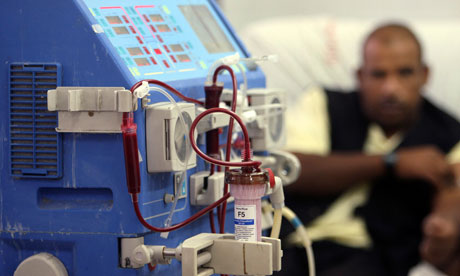 The Cuban government has signed a memorandum of understanding (MoU) with the Federal Government of Nigeria on health technological transfer. Representing the Cuban government during the signing, theCuban Ambassador to Nigeria, Mr. Carlo Sosa, assured that his country has everything is takes to transform the health standard of Nigerians positively through technological transfer. While reiterating his country’s commitment to assist Nigeria by sharing their acquired health – based knowledge with Nigeria, the Ambassador said that historically, Cuba regards Nigeria as her ancestor. He went further to say that Cuban Government can not hesitate to exchange ideas with Nigerian scholars especially on research towards finding lasting solutions to some dreaded health challenges both in Nigeria and Cuba.
The Cuban government has signed a memorandum of understanding (MoU) with the Federal Government of Nigeria on health technological transfer. Representing the Cuban government during the signing, theCuban Ambassador to Nigeria, Mr. Carlo Sosa, assured that his country has everything is takes to transform the health standard of Nigerians positively through technological transfer. While reiterating his country’s commitment to assist Nigeria by sharing their acquired health – based knowledge with Nigeria, the Ambassador said that historically, Cuba regards Nigeria as her ancestor. He went further to say that Cuban Government can not hesitate to exchange ideas with Nigerian scholars especially on research towards finding lasting solutions to some dreaded health challenges both in Nigeria and Cuba.
Ambassador Carlo expressed confidence that Cuba has, through research produced various vaccines that have sustained the country from some deadly diseases ravaging some countries in the world. This goes as far as cancer according to him. “Cancer is no longer a threat to the lives of Cubans,’’ he said. The collaboration will also be extended to boost Agricultural development in the two countries. Reacting to the development, the Vice Chancellor, University of Ilorin, Professor A.G. Ambali, who represented the Nigerian government, said Nigeria’s choice for Cuba for the collaboration is not out of place, considering Cuba’s expertise in health and research.
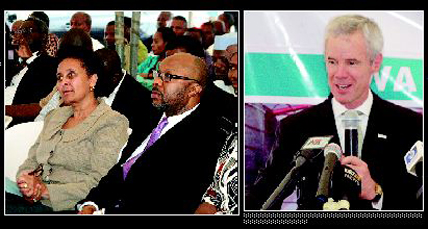 The health sector can do with a lot of help. Players in the sector believe that with President Muhammadu Buhari in the saddle, facilities will soon be enough to meet the people’s health needs. OLUKOREDE YISHAU examines the challenges facing this all-important sector, which has not received any cash for capital projects this year. MINISTRY of Health Permannent Secretary of theLinus Awute has a dream. He looks forward to a day when medical tourism will become a thing of the past. The country loses millions of dollars annually as patients seek help in India, United Kingdom (UK) and the United States (U.S.). Awute believes President Muhammadu Buhari has what it takes to take the country to its medical Eldorado. The signs are beginning to show, he believes.
The health sector can do with a lot of help. Players in the sector believe that with President Muhammadu Buhari in the saddle, facilities will soon be enough to meet the people’s health needs. OLUKOREDE YISHAU examines the challenges facing this all-important sector, which has not received any cash for capital projects this year. MINISTRY of Health Permannent Secretary of theLinus Awute has a dream. He looks forward to a day when medical tourism will become a thing of the past. The country loses millions of dollars annually as patients seek help in India, United Kingdom (UK) and the United States (U.S.). Awute believes President Muhammadu Buhari has what it takes to take the country to its medical Eldorado. The signs are beginning to show, he believes.
The statistics paint a scary picture. For a nation with a population of over 150 million, there are 38 Federal Medical Centres (FMCs) and federal teaching hospitals. There are nine federal neuropsychiatric hospitals, three orthopedic hospitals, an Ear Nose and Throat Hospital in Kaduna and a federal Eye Hospital in Zaria, Kaduna State. The inability of the Federal Government to go it alone made private organisations to partner with it to establish other eye centres in Idi-Araba, Lagos and Onitsha, Anambra State. Visits to the Lagos University Teaching Hospital (LUTH) and other tertiary institutions around the country confirm the pictures as painted by the statistics. The facilities are just overwhelmed and those who patronise them do not get the deserved services. Ordinarily, the government should have nothing to do with primary healthcare. It should be the headache of local governments.
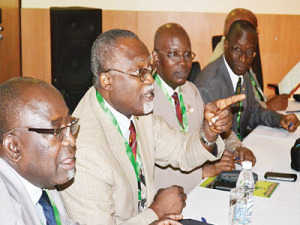 Recently, the National Postgraduate Medical College of Nigeria (NPMCN) raised objection over the dissolution of Medical and Dental Council of Nigeria (MDCN) by President Muhammadu Buhari. According to the council, the dissolution will not only promote quackery in the health sector, it will allow cases of malpractices to continue unabated. Making a case for its reinstatement, President of NPMCN, Prof. Rasheed Arogundade argued that MDCN be exempted as was in the case of the Universities Governing Councils because such premature dissolution had caused disastrous consequences in the past. Definitely, we are in line with this plea because as a regulatory body set up by statute, the dissolution of MDCN is the same as stopping all the functions.For example, the Council’s functions include medical education, accreditation of professional institutions, maintenance of standards, enforcement of discipline and monitoring of health institutions that are training doctors all over the country among others.
Recently, the National Postgraduate Medical College of Nigeria (NPMCN) raised objection over the dissolution of Medical and Dental Council of Nigeria (MDCN) by President Muhammadu Buhari. According to the council, the dissolution will not only promote quackery in the health sector, it will allow cases of malpractices to continue unabated. Making a case for its reinstatement, President of NPMCN, Prof. Rasheed Arogundade argued that MDCN be exempted as was in the case of the Universities Governing Councils because such premature dissolution had caused disastrous consequences in the past. Definitely, we are in line with this plea because as a regulatory body set up by statute, the dissolution of MDCN is the same as stopping all the functions.For example, the Council’s functions include medical education, accreditation of professional institutions, maintenance of standards, enforcement of discipline and monitoring of health institutions that are training doctors all over the country among others.
We recall that the board of MDCN has been dissolved several times in the past 20 years and which is responsible for the unsavoury developments and instability in medical education, practice and discipline in the country. For the avoidance of doubt, the Medical and Dental professions are regulated by the Medical and Dental Practitioners Act Cap 221, Laws of the Federal Republic of Nigeria 1990 and prescribes the kind of sanction that could be imposed on a medical doctor who is found liable for misconduct. Without the council, there is no regulation for medical colleges and medical curriculums to train doctors, even as there will be no disciplinary body to sanction unethical conduct. Incidentally, dissolution of the council not only had devastating and detrimental consequences to both the professions and society, it encouraged sub-standard medical and dental schools, even as programmes were granted accreditations; thus producing incompetent practitioners.






